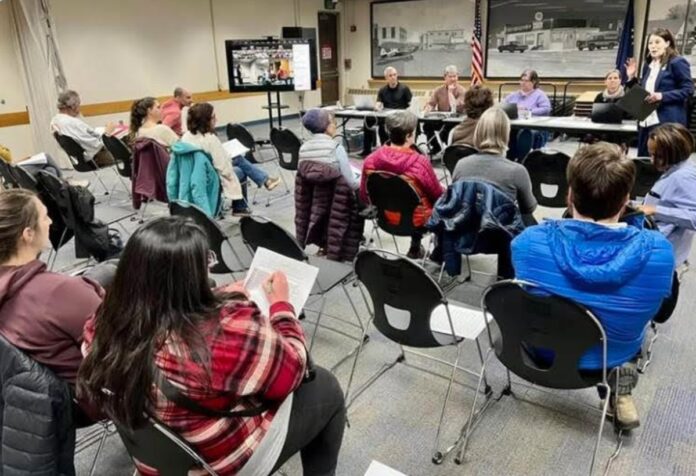By ZACK GOTTSHALL
Something serious is happening inside the Federation of Community Councils (FCC)—and Anchorage’s residents should be paying attention.
The FCC’s executive staff have introduced draft bylaws that would eliminate the voting power of every community council delegate and consolidate control under a small, unelected Board of Directors. The proposal, dated October 10, 2025, would replace the long-standing board-of-delegates model—where every neighborhood council has a vote—with a corporate-style structure in which just seven to eleven individuals make all decisions.
This is not reform. It is a deliberate move to remove authority from the very people the FCC was created to support.
For nearly fifty years, Anchorage’s Community Councils have been the foundation of local participation in city government. Their purpose is clearly defined in law. Anchorage Municipal Code 2.40.020, which implements Article VIII of the City Charter, guarantees citizens “a direct and continuing means of participation in government and local affairs” and ensures “maximum community involvement and self-determination.”
Each council—whether in Fairview, Spenard, Eagle River, or Girdwood—elects its own officers and sends a delegate to the FCC. Together, those delegates represent every neighborhood in Anchorage, guiding how the FCC’s municipal grant funds are used to support public meetings, communication, and recordkeeping.
The Municipality of Anchorage’s own reference guide, Community Councils 101, is explicit about the FCC’s role:
“The FCC is not recognized in the charter or municipal code; the organization is granted money by the Assembly to provide support to the community councils.”
That means the FCC exists to assist, not to command. It has no statutory authority. The councils are recognized by law; the FCC is not.
The proposed bylaw changes reverse that relationship. By eliminating delegate votes, FCC staff are positioning themselves—and a handful of board members—to direct how public funds are spent and how community issues are prioritized. Delegates who now make motions and shape agendas would be reduced to passive observers.
That change violates the purpose of AMC 2.40.020 (A)–(B), which was enacted to keep citizen participation direct and continuous. Removing delegate authority inserts a private layer between the community and local government—an insulated intermediary with no legal accountability to the public.
Anchorage’s neighborhoods have long been able to bring forward concerns—from homelessness to road safety, zoning, and drainage—through their councils. The FCC’s staff now propose to take those voices out of the equation.
That is not efficiency. It is control.
The FCC is funded by the Anchorage Assembly to support neighborhood participation. If its own staff rewrite bylaws to override those neighborhoods, they’re acting beyond the purpose of that public grant. The Assembly allocates taxpayer money to strengthen councils’ advisory role—not to fund an internal bureaucracy that limits it.
If implemented, this new structure would turn the FCC from a service organization into an unaccountable management board. That is not what the Charter envisioned when it promised “maximum community involvement.”
Anchorage’s Assembly members should not let this proceed quietly. They should review the proposed bylaws before adoption, ensure the FCC remains aligned with its grant purpose, and withhold further funding if it does not. The Municipal Ombudsman should also evaluate whether the proposal conflicts with the Charter’s guarantee of direct citizen participation.
This is a question of governance, not convenience. The FCC staff were hired to serve the councils, not to rewrite the system that keeps those councils free and self-determining.
Anchorage’s neighborhoods have earned their voice in city affairs. It should not be handed away to a small group operating without a public mandate.
The next FCC Board of Delegates meeting will be held on Wednesday, October 15, 2025, from 6:00–8:00 p.m. at the FCC Conference Room and via Zoom (Meeting ID: 896 0052 8663). The agenda includes the “Introduction of Draft Bylaws” as a discussion item for delegates, with revisions expected to return for a potential vote in December. Residents and council members are encouraged to attend and provide comment.
Zack Gottshall is a retired U.S. Army Intelligence Officer, a Commissioner on the Alaska State Commission for Human Rights, Vice President of the Taku/Campbell Community Council, and a small business owner in Anchorage, Alaska.
